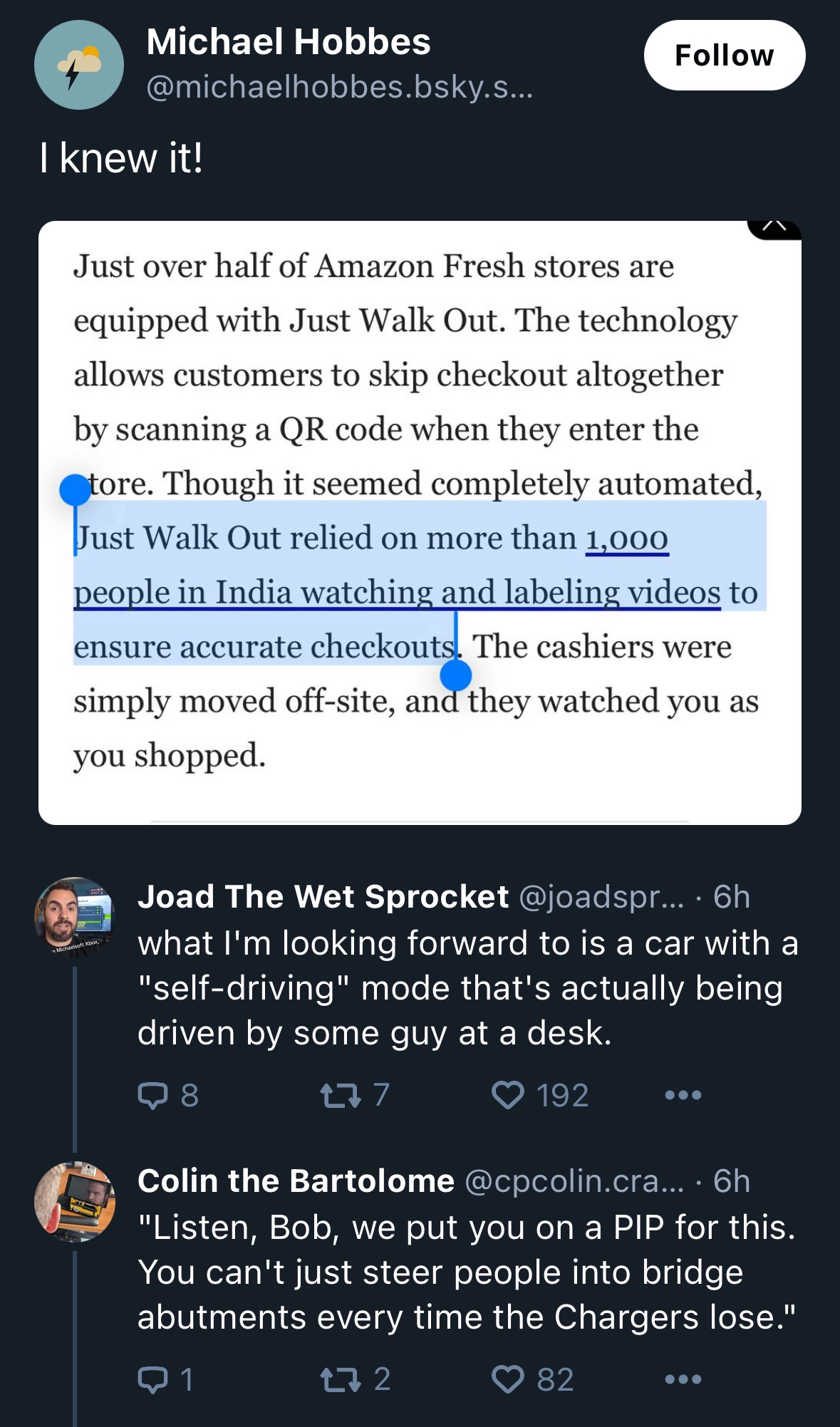this post was submitted on 02 Apr 2024
872 points (99.9% liked)
196
16747 readers
1729 users here now
Be sure to follow the rule before you head out.
Rule: You must post before you leave.
founded 2 years ago
MODERATORS
you are viewing a single comment's thread
view the rest of the comments
view the rest of the comments

I mean ask Apple or Google how many people listen to their voice systems to manually improve them for accuracy...you have to train the AI somehow
Yeah except with there being only 27 stores in the US that use this tech if you have 1000 people reviewing the purchases is it really a machine learning system or are you just outsourcing the process to people in another country.
You still have to keep training the Model. These stores were in large busy markets, and having people watch and critique the AI is how they continually train the model. It took Apple over 8 years to 'announce' they're doing on device voice recognition(they probably aren't), and that was just voice recognition and LLM training vs image recognition which is hard on its own. Let alone tracking a person THROUGH a store, recognizing that someone picked something up and took it vs put it back or left it on another row.
The real reason this probably happened is because those 1000 people training the model reported metrics of failures on top of the stores showing losses due to error. The margin of error was probably greater than they wanted. Or add in the biometric data they had integrated into it adding more layers of cost and privacy protection...it probably just doesn't return the money they wanted and they'll try again in a few years probably utilizing more RFID on top of the image recognition and people tracking.